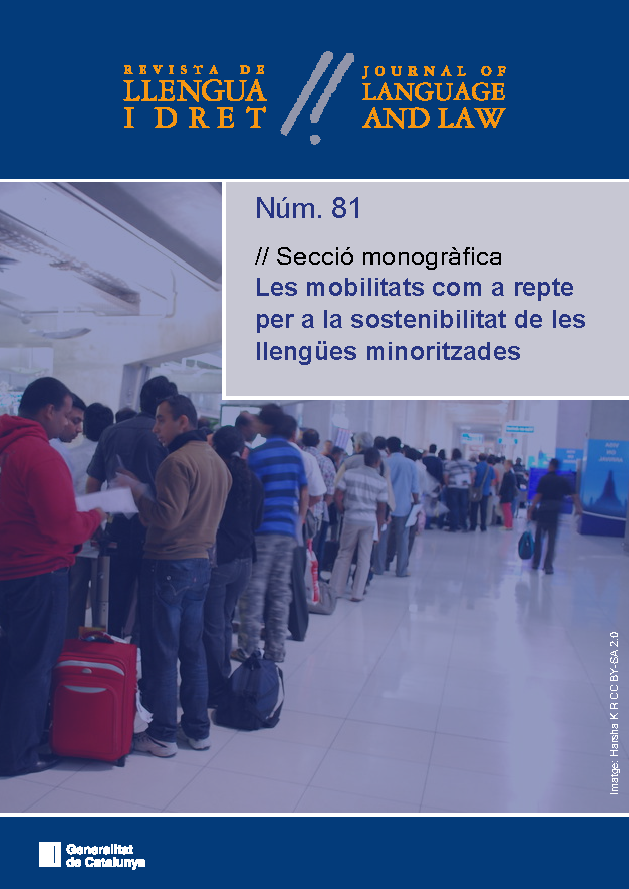The interpreter as coordinator of the communicative exchange: analysis of non-renditions in the judicial process
Article Sidebar

Main Article Content
This article looks at the nature and function of non-renditions in a Spanish-Chinese corpus compiled from real criminal proceedings held in the criminal courts of Barcelona. For methodology, it establishes a dialogue with contributions from the TIPp project (Arumí & Vargas-Urpí, 2018) and Cheung (2017) and uses the EXMARaLDA programme to annotate the interpreters’ interventions based on two main distinctions: a) justified non-renditions vs. unjustified non-renditions and b) self-initiated non-renditions vs. non-renditions prompted by others. A specific classification system is developed based on the pragmatic function of each of the interventions. Five categories of justified non-renditions and four categories of unjustified non-renditions are distinguished. Likewise, a distinction is made between non-renditions initiated by interpreters and those prompted by other participants. The results show a high frequency of non-renditions in court interpreting between Chinese and Spanish, the vast majority of which are unjustified and initiated by the Chinese-speaking interpreters themselves, which poses a clear threat to the impartiality of their intervention in trials.
Article Details
(c) Revista de Llengua i Dret, 2024